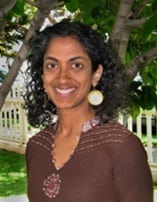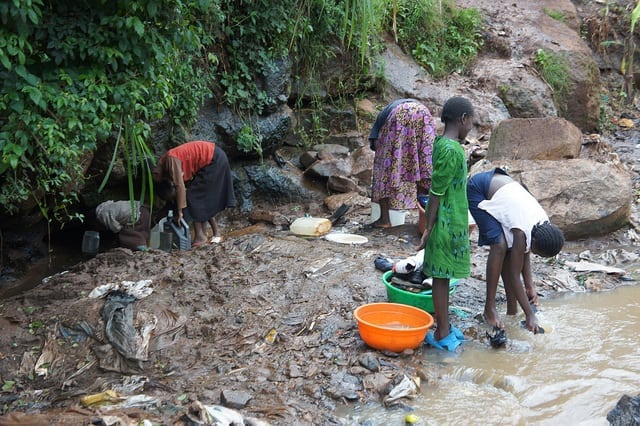About this Webinar:
The tragedy of human development is that every year millions of people, mostly young children, die from preventable waterborne diseases, caused by lack of reliable access to safe water and sanitation. While the UN has declared that the Millennium Development Goals (MDGs) for water have been met globally, communities from parched-earth rural settings in West Africa to rain-drenched urban settings in Southeast Asia still lack basic water and sanitation to lead secure and productive lives.
The reality is that hundreds of effective technologies exist to provide basic needs for water and sanitation, and to affordably treat drinking water. Yet, the billions of people without access to safe water and sanitation have no access to information that empowers them to solve their own water and sanitation challenges. Those without water and sanitation are often the poorest and most vulnerable, and their communities have no source for assistance that allows them to choose the most appropriate option for their particular situation and provides the technical and financial support to help implement that option.
The goal of the Community Choices system is to create an accessible decision support system that provides water, sanitation, and hygiene (WASH) practitioners, community members, NGOs, donors, and local governments with dynamic and comprehensive – and comprehensible – information on appropriate and available technologies and solutions to WASH sector problems. Community Choices will help WASH practitioners to more effectively engage communities in selecting, adopting, and maintaining the most suitable technologies, financing mechanisms, and management approaches based on their own unique needs and preferences. This system marries community preferences with up-to-date cost, maintenance, and technical information on the entire range of relevant-to-them WASH technologies and approaches in use locally and in other similar environments.
Community Choices catalyzes a paradigm shift in knowledge management through the creation of an online and downloadable WASH decision support system that makes the knowledge of water and sanitation solutions accessible to all. The knowledge and technologies we need to solve global water issues are available, yet communities and practitioners still lack access to timely and appropriate information needed to take effective action. Instead of collecting information and storing it in multiple books and web pages, Community Choices makes information easily accessible (both in format and language) to the non-expert user in his/her specific location. It asks a series of simple questions about individual situation, needs, and community context, and then dynamically provides comprehensive information to build, maintain, and finance the solution and to connect to local experts and resources that can provide technical support.
Presenters:
Meena Palaniappan is director of the International Water and Communities Initiative. Formerly the director of the Community Strategies for Sustainability and Justice Program at the Pacific Institute, Ms. Palaniappan is an engineer with more than 15 years experience in community-based environmental planning and research. She has worked extensively on water, sanitation, and hygiene issues internationally including in Mexico, East and West Africa, and India. In India, she has worked with numerous community-based organizations on water pollution, basic water needs, and water and climate change. Ms. Palaniappan has directed several international water and sanitation projects, including documenting successful water management worldwide:Principles and Practices in the New Economy of Water; planning for future water infrastructure needs: OECD’s Water Infrastructure and Water-related services: Trends and Challenges Affecting Future Development; and has written and presented on Peak Water. She is currently leading projects on expanding the ability of communities to choose water and sanitation technologies and approaches, and improving the resilience of communities to water insecurity as a result of climate change.
At the Pacific Institute, she has directed numerous community-based participatory research projects, including the Environmental Indicators Project which successfully developed neighborhood-level criteria for assessing a community’s environmental conditions and helped community groups use this information to create positive environmental change. Before coming to the Pacific Institute, Ms. Palaniappan worked with the Environmental Defense Fund on sustainable community development, pollution prevention, and environmental justice, co-authoring the EDF’s Environmental Sustainability Kit. Previously, she also developed an Action Plan for Clean Waterways Chennai, India that was endorsed by the Tamil Nadu Government in partnership with public interest organizations.
Ms. Palaniappan received a Master of Science degree in Energy and Resources from the University of California, Berkeley. She also holds an undergraduate degree in Environmental Engineering from Northwestern University. Her interests include environmental justice, community sustainability, pollution prevention, and international sanitation.
Dr. John Akudago is a Senior Research Associate in the water program of Pacific Institute. His research interests include quantitative and qualitative evaluation of aquifers and their effects on domestic and agricultural water uses, contaminant remediation, well siting and drilling, water resources management and conflict resolution, community sanitation, hygiene issues and behavior change, and the effect of climate change on water resources.
Prior to joining the Pacific Institute, Dr. Akudago worked with the Community Water and Sanitation Agency in Ghana as a hydrogeologist, World Vision Ghana also as a Hydrogeologist and Field Operations Manager, and Samaritan’s Purse as a Water, Sanitation and Hygiene Manager where he responded to water, sanitation and hygiene needs of Haiti earthquake survivors, the Cholera epidemic, and also Japan earthquake survivors. Dr. Akudago received his bachelor’s degree in Geological Engineering from Kwame Nkrumah University of Science and Technology, Kumasi, Ghana. He was later awarded a Japanese government Scholarship to study at Okayama University, Japan, where he received his Masters and PhD.

